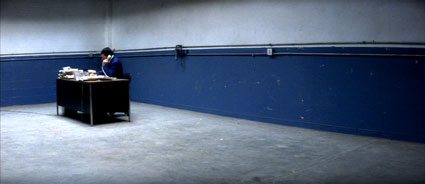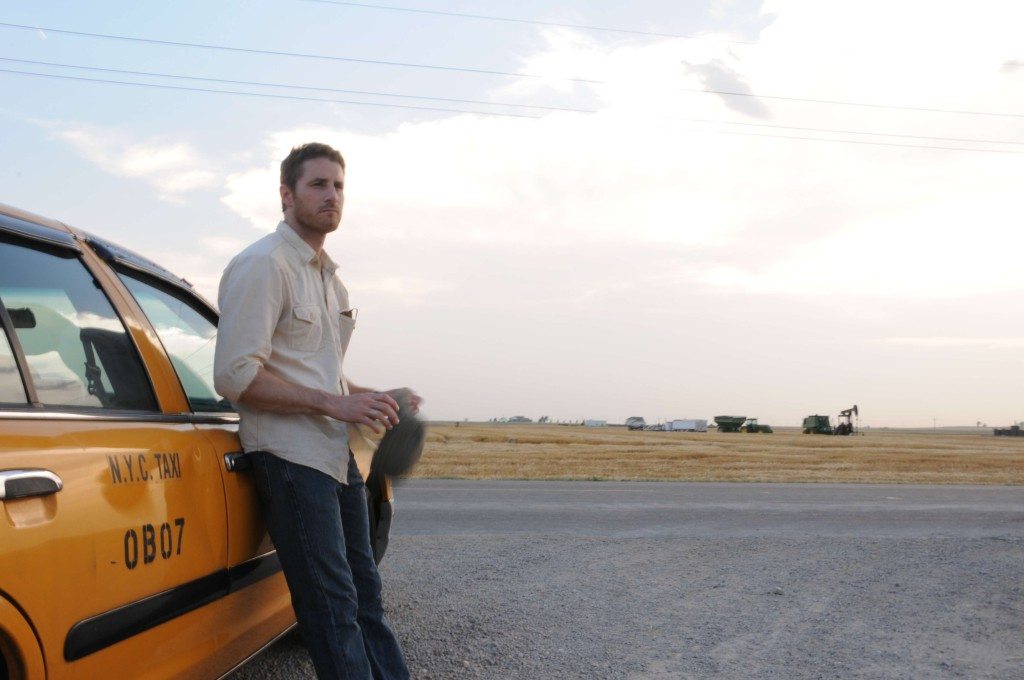Searching for something new this Valentines?
Writes put forward their less-than-usual picks for Valentines Day, away from the traditional tearjerking romance or heartwarming comedy.
Punch-Drunk Love

As far as rom-coms go, I wouldn’t expect Punch-Drunk Love to be at the top of many people’s lists when it comes to snuggling down to watch a film with their significant other this Valentine’s Day, but I thoroughly recommend it. After Paul Thomas Anderson’s exhausting emotional rollercoaster that is Magnolia, released in 1999, he quipped that his next film would be a 90 minute Adam Sandler movie. Many passed this off as a joke, considering the quality of some of Sandler’s films, but sure enough, in 2002, Punch-Drunk Love was released. The film follows the blossoming relationship between the socially anxious Barry Egan (Adam Sandler) and enigmatic Lena Leonard (Emily Watson). Testament to Anderson’s exquisite directing and cast choice, Adam Sandler’s performance as a neurotic, downtrodden novelty toilet-plunger salesman is undoubtedly his best. It’s second only to Emily Watson, who provides a calm counterpoint to Barry’s erratic and heightened character, despite her complete infatuation with him. The score, by Jon Brion (a frequent collaborator with Anderson), flits between a soft lulling main theme and a hectic banging of drums and everyday objects, reflecting Egan’s anxious mind.
The relationship between the Barry and Lena is heart-warming and visceral, and it explores the thin line between passionate love and violence as well as love and obsession. The film consists of some eye-welling romantic shots of the awkward but utterly enamoured couple as they stumble through the start of their relationship showing, fundamentally, that there really is someone out there for everyone and that ultimately, when you find that person, it allows us to overcome obstacles that previously seemed too tremendous to conquer.
By Anonymous
Garden State
 Zach Braff’s Garden State can undoubtedly be counted upon to be one of the films of choice for indie couples everywhere this Valentine’s Day. In the most disdainful way, it epitomises the idea of the ‘alternative’ Valentine’s Day film. Along with (500) Days of Summer, Garden State makes use of the tropes of alternative music, wayward young adults, and the pixie girl-woman with wide eyes and an eccentric disposition. For these reasons, Garden State has been heavily criticised.
Zach Braff’s Garden State can undoubtedly be counted upon to be one of the films of choice for indie couples everywhere this Valentine’s Day. In the most disdainful way, it epitomises the idea of the ‘alternative’ Valentine’s Day film. Along with (500) Days of Summer, Garden State makes use of the tropes of alternative music, wayward young adults, and the pixie girl-woman with wide eyes and an eccentric disposition. For these reasons, Garden State has been heavily criticised.
I, however, am part of the dwindling number that holds their hands up and (quietly) admit to liking Garden State. Sure, it has its flaws. You can’t fail to roll your eyes when the protagonist Andrew Largeman (played morosely by Braff) says that the reason he is attracted to Sam (Natalie Portman) is because of her innocence. Irritating as Sam occasionally can be, her personality is more than just a token quirkiness.
What critics of Garden State tend to forget is that it is a film about dysfunctional emotions. Largeman cannot express himself due to having been on a behaviour inhibiting drug for most of his life, and does not even cry at his mother’s funeral. Sam functions as the direct opposite, but not necessarily in a positive way. She is highly sentimental; she attaches huge significance to the death of family pets, despite the fact that a veritable graveyard occupies their back garden. The contrast between Largeman and Sam is obvious when he downplays the death of his mother to the death of one of Sam’s hamsters. Sam feels everything keenly and indiscriminately while simultaneously recognising humour in the everyday setbacks of life. The myriad of emotions she experiences, while having spawned many wide-eyed, eccentric girl-women, play an important role in the exploration of how we express ourselves.
Sam’s strange behaviour is part of what heals Largeman, and his feelings for her are stronger than any others. For a Valentine’s Day film it does have charm.
By Beth Erasmus
Howl’s Moving Castle
Howl’s Moving Castle (Hayao Miyazaki, 2004) is a visually stunning story which focuses on a young girl’s journey of self-discovery, as she is transformed into a 90 year old woman by a witches curse. The romance that blossoms between a powerful wizard, Howl (voiced by Christian Bale in the English dub) and Sophie is complicated, as for a large amount of the film Sophie is an old woman. 
Their first meeting is very in-line with traditional romance narratives, as Howl rescues the young and beautiful Sophie from two leering men, sweeping her off her feet and carrying her into the sky. In their next meeting, Sophie is transformed into an old woman, and ends up working as a cleaning lady in Howl’s castle. It is uncertain whether Howl recognises her and sees past her curse. The film plays with the idea of what is beautiful and seeing past appearances, and it seems that Sophie finds freedom and peace as an old woman, and Howl sees past her appearance and loves her either way. The romance between Howl and Sophie takes somewhat of a backseat, as a vicious war consumes the country and Howl struggles for his own freedom, in refusing to help attack the neighbouring country. Sophie struggles with her own feelings for Howl, at separate points breaking her own spell with her love and falling back into the curse with her denial and self-doubting. The film is touching and emotional, with budding relationships forming between the residents of Howl’s castle, each one of them unique and different.
Some of the moments between their amalgam of a family are particularly tender, and the film has a special ability to give life to otherwise non-human characters. The film plays with conventional romance themes and re-works them in interesting and unique ways, and while it plays on the traditional ‘love breaks the spell’ trope, it does so in a wholly inventive and fresh way which makes for an entirely pleasing watch for most audiences, and is a particularly heart-warming watch for couples.
By Emily Sayers
Take Me Home
 Many of today’s romantic comedies are rollercoasters of grand gestures, illogical obstacles and big speeches, all which try to race the couple to the finish line. Take Me Home (2011) is a film which kept all the heart and joy of a romantic comedy, but executed it with subtlety and meaning. Not without the common conventions, Take Me Home tells the story of illegal taxi driver Thom (Sam Jaeger) and Claire (Amber Jaeger), who hires him to drive her from New York to California. Their mostly secluded journey allows for dialogue to take centre stage, but it’s the quiet moments of the film that stand out the most. For a low-budget film the cinematography and direction is exceptional -the landscapes they stop at along the way are taken full advantage of and audiences aren’t rushed away from it, rather we are allowed to appreciate all that is going on on-screen.
Many of today’s romantic comedies are rollercoasters of grand gestures, illogical obstacles and big speeches, all which try to race the couple to the finish line. Take Me Home (2011) is a film which kept all the heart and joy of a romantic comedy, but executed it with subtlety and meaning. Not without the common conventions, Take Me Home tells the story of illegal taxi driver Thom (Sam Jaeger) and Claire (Amber Jaeger), who hires him to drive her from New York to California. Their mostly secluded journey allows for dialogue to take centre stage, but it’s the quiet moments of the film that stand out the most. For a low-budget film the cinematography and direction is exceptional -the landscapes they stop at along the way are taken full advantage of and audiences aren’t rushed away from it, rather we are allowed to appreciate all that is going on on-screen.
What I appreciated most from this film was the attention given to the characters as they bond. Sam and Claire both felt like the protagonists of the film, we were given insight into their flaws, their accomplishments and their own personal journeys. Their chemistry is undeniable, which is no surprise seeing as the actors are married in real life, which just adds more authenticity to this already natural romance.
The film touches on much of what romantic films tend to overlook or deal with superficially; the relationship with your family, with your career and with yourself. The fact that it does not deal solely with romance and the couple is what I think make the film so unique – nevertheless it is not without its compassionate moments between Sam and Claire and neither without genuine comedy which isn’t fake or forced. Take Me Home is a quietly powerful film with charming, truthful dialogue and mesmerizing settings that explores where, and who with, home is.
By Tanika Patel

Comments